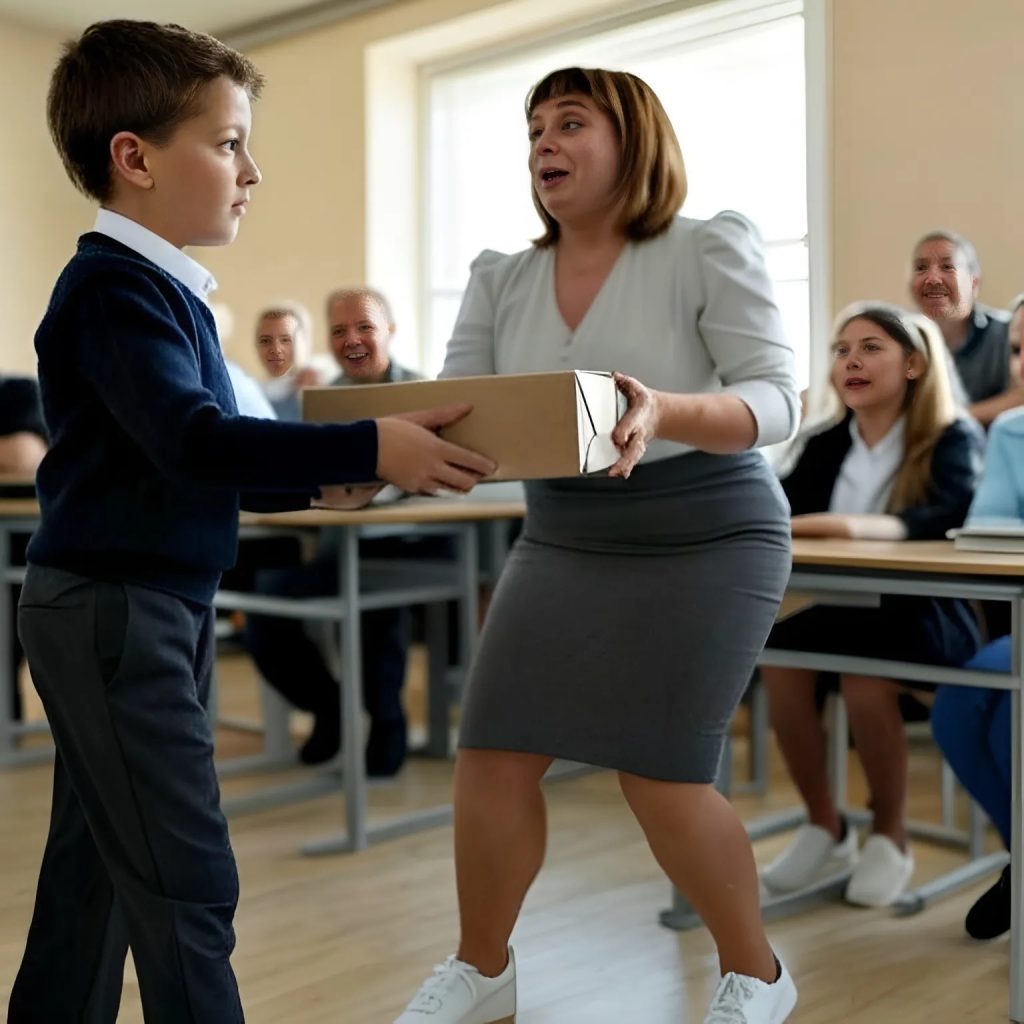Sometimes the quietest students carry the heaviest stories. In every classroom, there is at least one child who blends into the background, who walks the hallways without ever being truly seen. For teacher Anna Ivanovna, that student was Artem Solovey.
Artem wasn’t bright or bold. He wasn’t clever with words or quick with answers. He rarely spoke, and when he did, his voice was soft, almost reluctant. He wore the same worn-out sweater day after day. His hair was always disheveled, his notebooks stained and creased. He didn’t make friends. He didn’t cause trouble. He simply existed — quiet, distant, and forgettable.
Among the teachers, he was whispered about. “Not very sharp.” “Emotionally shut down.” “Comes from a rough home.” Anna Ivanovna, a woman who prided herself on fairness and discipline, told herself she loved all her students equally. But in truth, she found herself irritated by Artem’s presence. She never admitted it aloud, but she took a strange satisfaction in marking his tests with red ink, the bold “2” (equivalent to an F) always written with more flourish than necessary.
She had read his file. She knew his background.
Grade 1:
“Artem shows promise and participates willingly. However, home conditions appear unstable and may affect long-term performance.”
Grade 2:
“Withdrawn behavior noted. Appears undernourished at times. No parental involvement observed.”
Grade 3:
“Academic decline continues. Lacks focus. Emotional detachment from peers and staff.”

Still, it was easier to ignore the details and just continue on.
Then came a particular day in December. The school was preparing for the New Year celebration. Children decorated the classroom, recited poems, crafted cards. On the last day before the holidays, many brought small gifts for their teacher.
Anna Ivanovna received chocolates wrapped in red foil, a scented candle, and a set of pens from the more attentive, well-groomed students. They lined up in front of her desk, one by one, smiling as they handed her their tokens of appreciation.
Then came Artem.
His face was unreadable as always. In his hands was a small box — clumsily wrapped in yellowing paper. It was torn in one corner. There was no ribbon, no card. Only tape, holding it together unevenly.
The classroom broke into laughter.
One student whispered, “Probably an old toy.” Another muttered, “Bet he found it in the trash.” Even Anna Ivanovna smirked slightly before forcing a neutral expression.
She took the box and placed it on her desk, planning to open it later. But the children begged her to open it then and there. Curiosity — and the anticipation of more laughter — filled the room.
Reluctantly, she peeled away the paper.
Inside was a small glass perfume bottle — half full. Next to it, a simple bracelet, made of cheap plastic beads strung on a worn elastic thread.
Anna Ivanovna was about to thank Artem and move on, when he quietly said, “That perfume… it was my mother’s favorite. Before she got sick. And the bracelet… she made it for me. I thought… maybe you’d like them.”
The silence that followed was unlike anything the classroom had experienced all year.
No one laughed. No one spoke.
Anna Ivanovna stood frozen. In her hands were not worthless objects, but fragments of a child’s love — and loss. Gifts not bought, but remembered. Not wrapped with money, but meaning.
It was only then that she fully understood. Artem had given her everything he had.
Tears welled in her eyes. She set the perfume and bracelet gently on her desk — more carefully than she had handled any gift that day. Then she looked up and saw Artem still standing there, not expecting anything in return.
“Thank you, Artem,” she said, her voice trembling. “This is… this is very special.”
After that day, something changed — not just in her, but in the entire class.
Anna Ivanovna began to speak differently to Artem. She asked about his day, praised his efforts, even when they fell short. He began to open up, slowly. His test scores improved. He smiled more. Other children sat near him at lunch. The gap between him and the world began to close — not because of a program or policy, but because someone finally chose to see him.
Years later, when Anna Ivanovna retired, she kept only a few things from her teaching career — a photograph, a thank-you card, and a small, nearly empty bottle of perfume.
And a beaded bracelet, made by a boy who had once been invisible.
